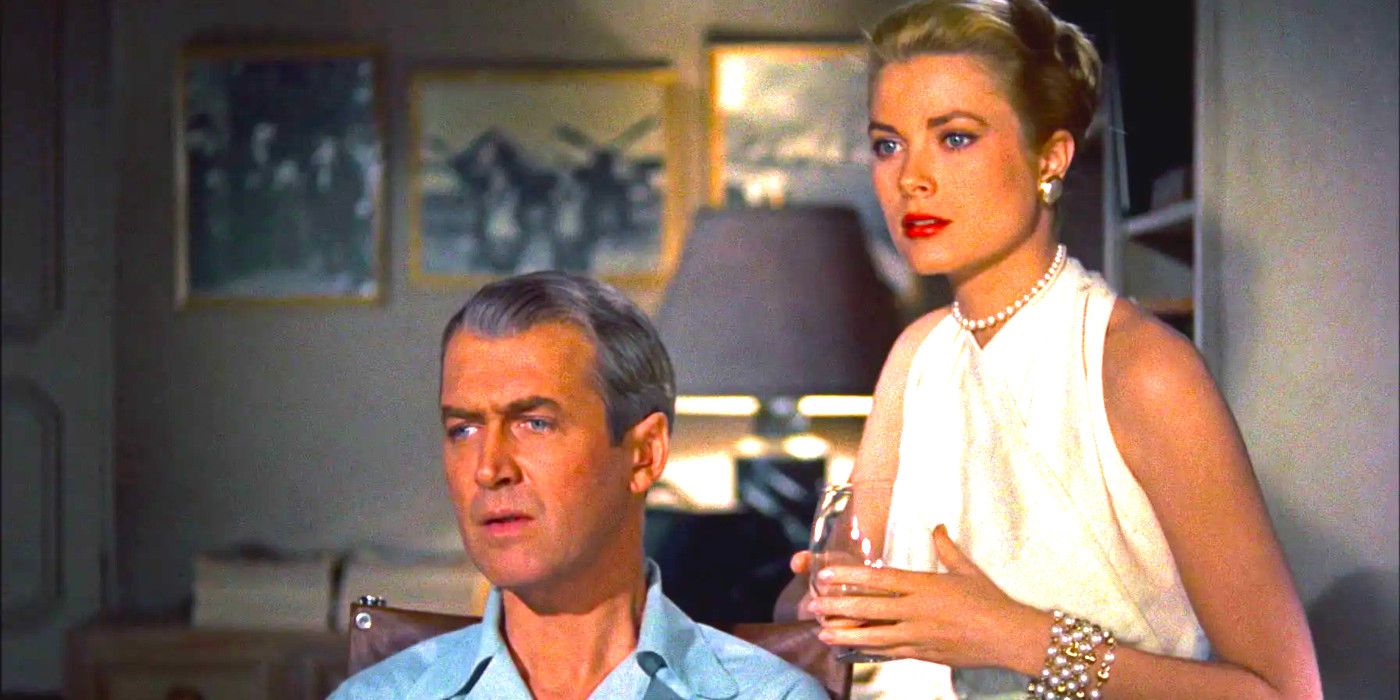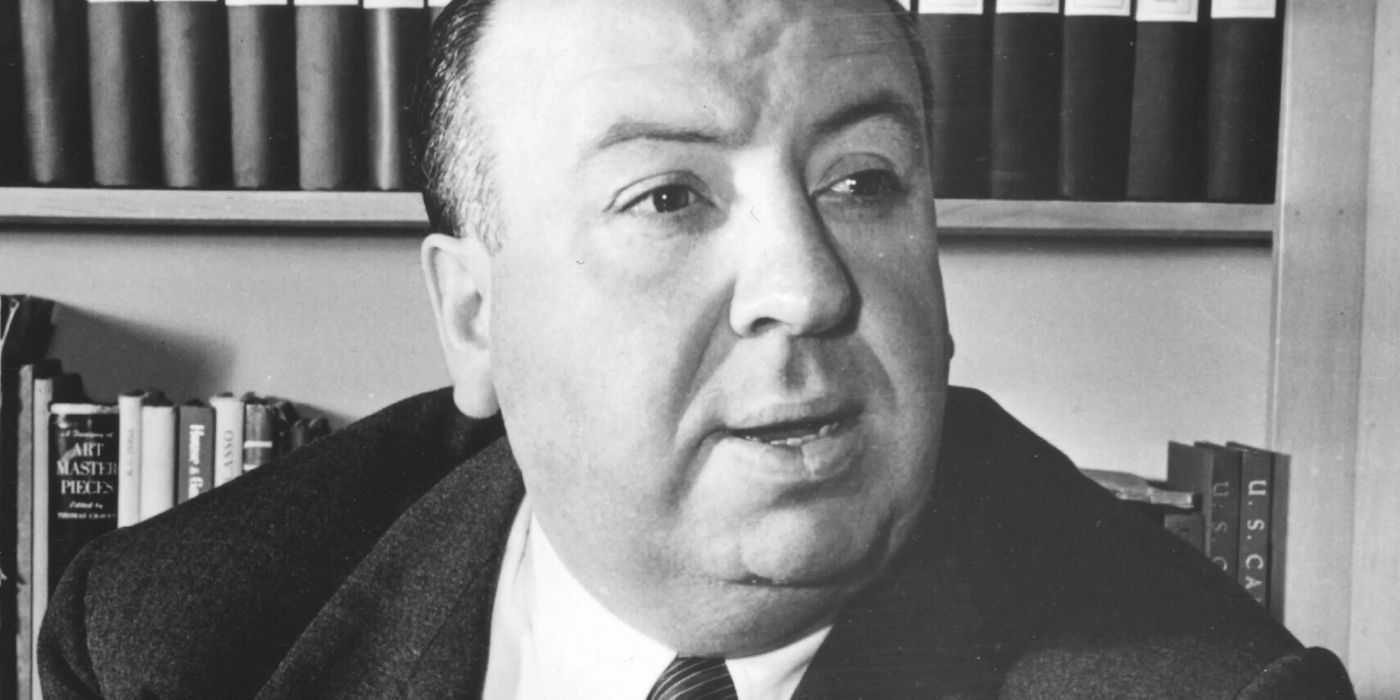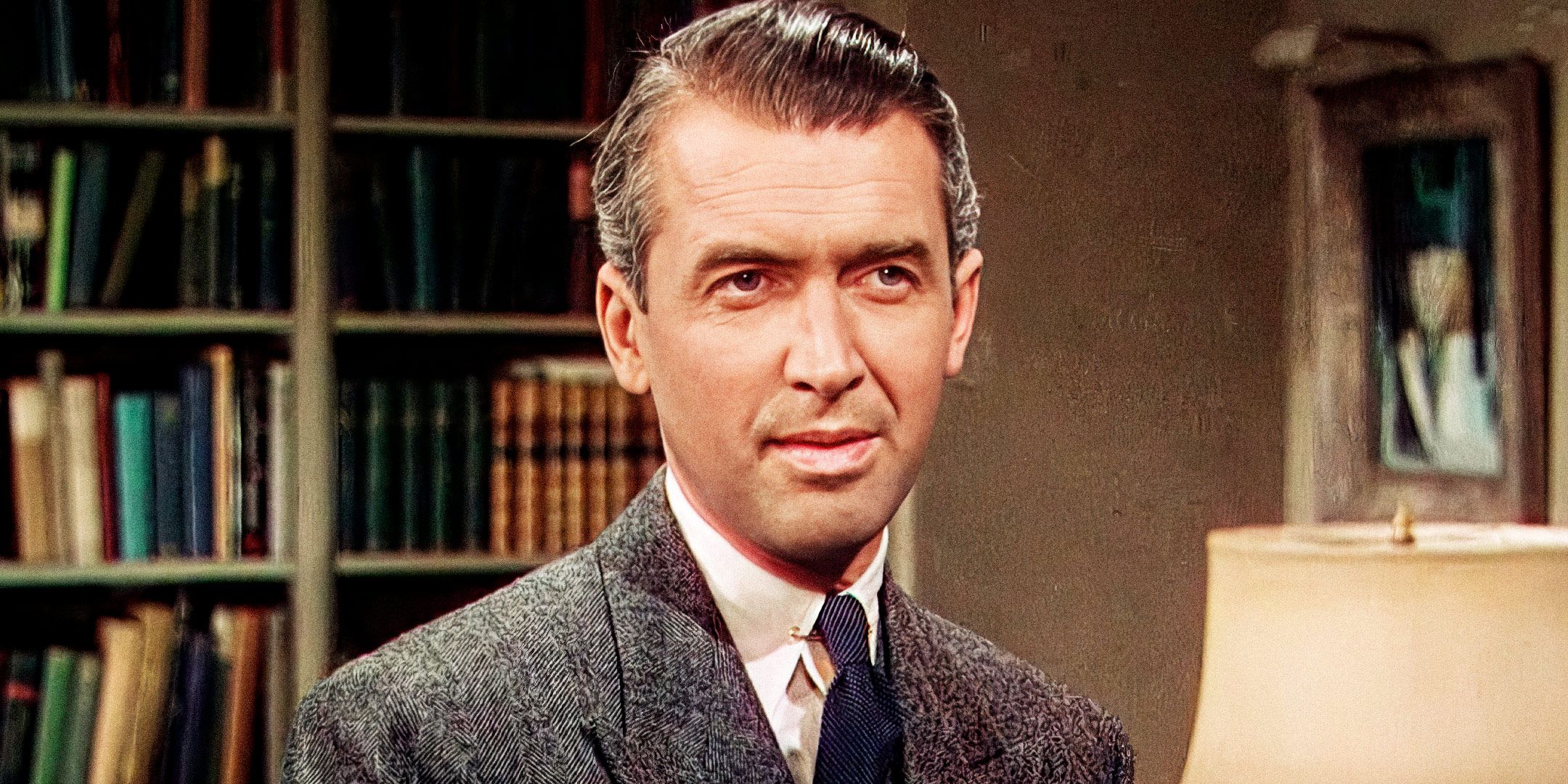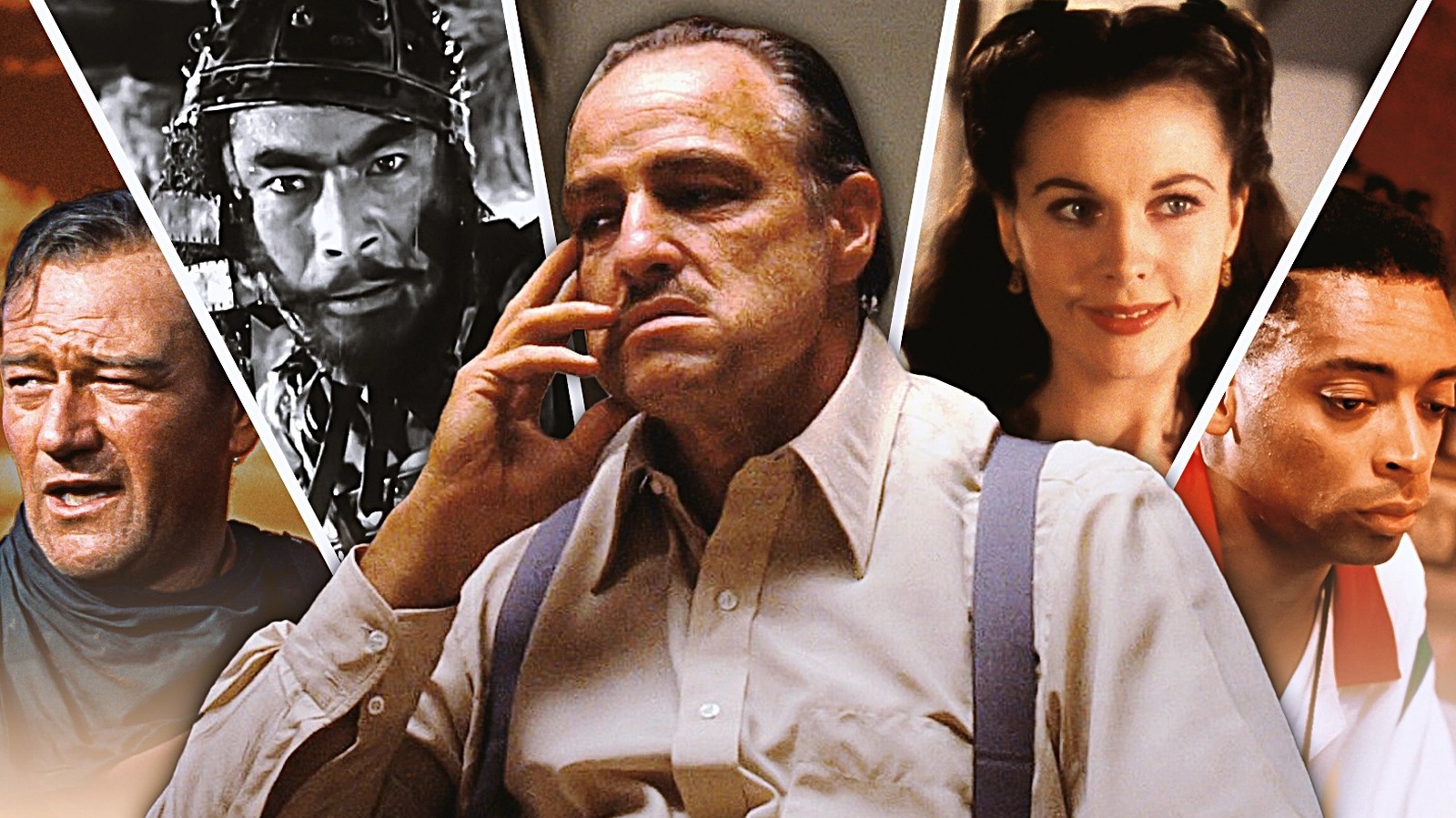Considering the sheer number of great movies has contributed to cinematic history, it's hard to identify any one particular film as his best work. Hence why he's known as one of the greatest directors of all time, Alfred Hitchcock, has his name attached to several movies considered among the best thriller movies ever made.
Few directors have a resume as impressive as Alfred Hitchcock's; his list of directing credits includes Rear Window, Notorious, To Catch a Thief, Psycho, and North by Northwest, all of which are movies with rich legacies that have endured for decades. Given his body of work, there's much for the director to take pride in.
In various interviews, Alfred Hitchcock took time to reflect on many of the movies he directed, both good and bad. In a 1969 interview, the filmmaker was challenged to name the movie that he was the most proud of [via The Hitchcock Zone]. Understandably, Hitchcock couldn't choose just one.

The two movies singled out by Alfred Hitchcock as his proudest achievements were Rear Window and Shadow of a Doubt. The former likely needs no introduction, as the 1954 film stands out as one of the director's most famous films. The second of four movies that Alfred Hitchcock made with James Stewart, Rear Window pulled off a daunting task by keeping Stewart's character in a single apartment for the extent of the entire film, without ever becoming boring.
As Hitchcock explained, he used this aspect of the film to its advantage: "it's the montage and the cutting of what he sees and its effect on him that creates the whole atmosphere and drama of the film. In other words, the visual transforms itself to emotional ideas." In Hitchcock's mind, Rear Window was the most "cinematic" movie he ever made.
This instilled a sense of realism in the movie, and with the help of the film's long takes, it created a vibrant and moving world that Jeffries could observe but rarely influence himself.
As Hitchcock explained, the "curiosity" that Stewart's L.B. Jeffries expresses in Rear Window as he spends his time staring out the window is drawn from real life, because "everyone does it, it's a known fact." This instilled a sense of realism in the movie, and with the help of the film's long takes, it created a vibrant and moving world that Jeffries could observe but rarely influence himself.
Alfred Hitchcock values the other movie he mentioned - Shadow of a Doubt - for a completely different reason. Rather than the cinematography and style being what drove his love for the film, it was the characters and the story that Hitchcock appreciated about Shadow of a Doubt, which was a 1943 movie about a girl who slowly comes to realize that her favorite uncle might be a murderer.

Related
5 Early Alfred Hitchcock Classics Streaming On Prime Video Right Now
Alfred Hitchcock's legacy is primarily defined by his movies in the 1940s, 1950s and 1960s. But some of his early work was among his best, too.
Hitchcock claimed that "the blending of character and thriller" is usually difficult to pull off, but was something that worked quite well for Shadow of a Doubt, which is also considered to be one of Alfred Hitchcock's best movies. Hitchcock viewed the narrative as a story that had more depth to it than the standard good vs. evil trope. While Teresa Wright's character is clearly the protagonist, she also brings about her uncle's downfall, someone who may or may not have genuinely cared about her.
You hear of murderers who feel they've been sent to destroy. Maybe those women deserved what they got, but it wasn't his job to do it. There is a moral judgment — he is destroyed at the end, isn't he? The girl unwittingly kills her own uncle. She is the instrument by which he falls in front of the train. It comes under the heading that all villains are not black and all heroes are not white. There are grays everywhere.
Hitchcock infused deep moral themes into the story, creating a internal struggle where the main character has to decide what do when she begins to suspect the truth about her uncle. , clearly pleased with how he instilled elements of suspense into her story, described Shadow of a Doubt as a "most satisfying picture" for him and one of his favorite movies.











